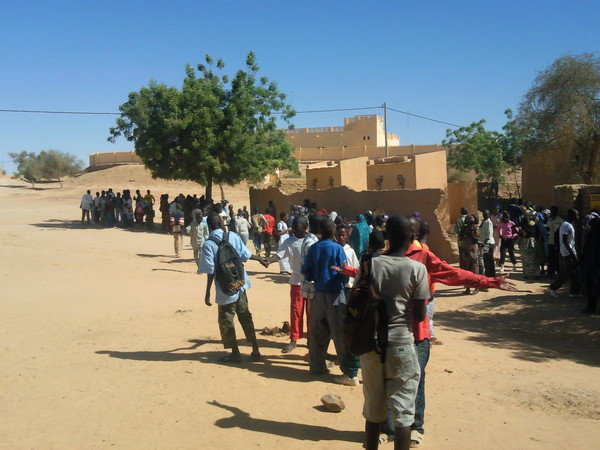It is a tragedy that is happening in the north of Mali without being noticed and far from the spotlight of the “researchers of what can be told”, to quote the periphrasis for journalist in the novel Les roues du destin of Amadou Keïta. It will soon be three months since the schools are closed there, teachers having made the the path to school a one-way street that they will only take, according to them, when their demands will be satisfied: update of teachers promotion, integration of civil servants in the civil service (which has been granted since 2010 but there are still teachers in the north who have not been integrated), return of the financial services of the State to the north, installation of pedagogy inspectorates in the northern regions, payment of advancement arrears.
These are the reasons that keep teachers and pupils away from school in the north of the country which remains drowned in the flood of peace speeches. Sufficient reasons, according to the Collective of northern teachers. For the government, there is no question of listening attentively to the chattering of teachers who refused to be represented by labor unions which they say they no longer trust. This is where we are in this situation which painfully reminds us that we live in a failed state where education is increasingly on the fall.
The key question is not why the government does not want to receive the northern teachers, but how the students will pass the exams. With mercenaries trained and paid to conduct assessments instead of teachers? We know that it is the method that is in honor and how dangerous it is for an education system that does not serve a country at risk like Mali. In the north where there are 10 per cent of the population, what is at stake is the future of the thousands of children who now tell anyone who wants to hear that they want to study. That they are entitled to it. That they are not separate children living in a region apart from Mali.
Let no one tell us that the approach of these teachers is “partitionist” and that it is a simple and sufficient reason not to listen to them. The problem is less the teachers’ grievances than the ego of those who hold the levers of power. And to whom it must be said that the children of the north want to study.
Boubacar Sangaré
